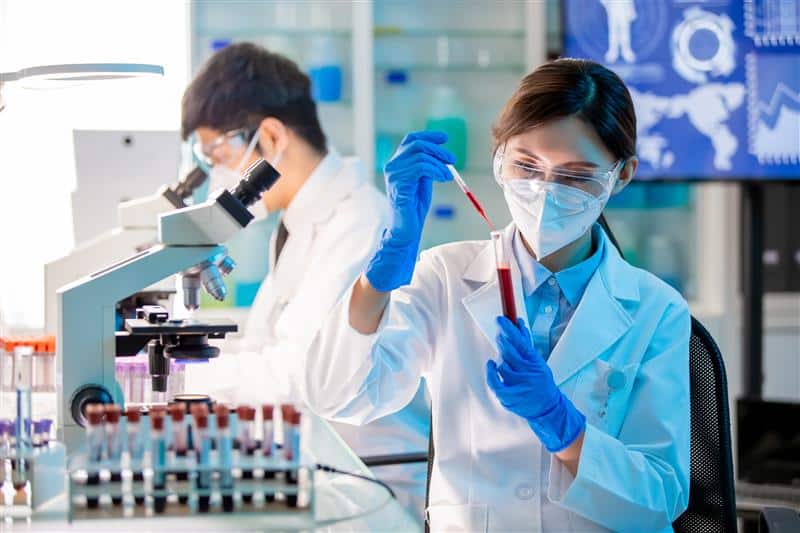
Whole Body MRI
Our state-of-the-art screening technology can detect potential health issues early, allowing prompt treatment and a greater chance of recovery. With Whole Body MRI, you can take control of your health and enjoy the peace of mind that comes with knowing you’re taking proactive steps to safeguard your well-being.
- The brain and neck will be checked for signs of cancer, aneurysms, and ischemic injury, as well as evaluate your spine for any abnormalities, herniations, or degenerative changes.
- The chest area will search for masses larger than 1.5cm and lesions as small as 0.5cm while inspecting vital organs, like the liver, gallbladder, pancreas, and more in the abdomen and pelvis for tumours as small as 1cm and other conditions.
- Shoulders, hips, and knees for any musculoskeletal conditions, ensuring a comprehensive health assessment. You can rest assured that no potential health issue will go unnoticed.
Importantly, this comprehensive and noninvasive scan will be completed in just 45 minutes, providing valuable health insights without the need for contrast administration. This convenience allows you to fit proactive health management into your busy schedule. To understand more, please check our how it works page.
This comprehensive screening provides valuable insight into your vital organs and blood vessels, allowing you to stay on top of your health and take the necessary steps to ensure a happy, healthy life. Remember, early detection can be life-changing and empowering, giving you the control to make informed decisions about your health.
*Please note that while a full body MRI scan provides an overall assessment, specific scanning parameters are necessary for a detailed examination of the prostate and breast.
Prostate MRI Screening
Performing a prostate MRI on our exclusive 3T MRI scanner significantly enhances the sensitivity and accuracy of prostate cancer detection. The scan typically takes about 30 minutes. Patients with a history of prostate cancer or those who have had an inconclusive prostate biopsy are not eligible for this screening study.
The screening prostate MRI scan is only conducted without contrast on a 3T MRI Scanner at the Mississauga location.


Liver Fat Quantification MRI
Fat buildup in the liver is a common condition and is a crucial feature of non-alcoholic fatty liver disease. It can also occur due to alcohol abuse, viral hepatitis, and other illnesses. This non-invasive study measures the amount of fat inside liver cells (hepatic steatosis). High levels of liver fat can indicate and contribute to an increased risk of death and illness. Fortunately, steatosis can be reversed with appropriate treatment. The study takes about 30 minutes and does not require contrast agents, ensuring patient comfort.
*This study is usually done simultaneously as a whole-body MRI scan.

Breast MRI Screening
Especially useful for women with dense breasts on mammogram. Performed bilaterally with the use of intravenous contrast only on low risk patients.
Breast Implant MRI
MRI is great at evaluating the integrity of silicone breast implants and the fibrous capsule that forms around an implant. MRI will be able to tell the difference between intracapsular and extracapsular breast implant rupture. This study takes around 20 minutes and no contrast is required.


Coronary (Cardiac) CTA and Calcium Scoring
This study will determine if plaque buildup has narrowed your coronary arteries, which are essential vessels that supply blood to your heart.
The findings from this study may determine lifestyle changes and/or further treatment/testing. This study is performed on a CT scanner and requires the intravenous administration of an iodine-containing contrast. It can take up to 30 minutes to complete.
Cardiac Calcium Scoring
This study is used for screening to detect coronary disease early, before the onset of symptoms. There is no need for advanced preparation, and no contrast agent is required. The study is typically performed with a coronary CTA to provide more valuable information, but it can also be obtained independently. The study is performed on a CT scanner; no contrast is required.


CT Lung Cancer Screening
Low-dose lung cancer screening using computed tomography (CT) has been shown to offer several benefits, particularly in patients who are smokers or have a history of smoking. It helps detect lung nodules, which can be cancer precursors and improve survival rates. Detecting lung cancer early leads to less treatment, improved recovery, and a significantly better quality of life, providing reassurance and comfort.
*Not eligible for private pay for patients who are 55-80 years old and have 20 pack-year history of smoking.
DEXA Scan
Our state-of-the-art DEXA scan offers a comprehensive analysis of your body composition, delivering precise measurements of:
- Total Body Fat Percentage: Understand the exact proportion of fat in your body.
- Visceral Fat: Identify fat stored around vital organs.
- Lean Muscle Mass: Assess the amount of muscle in your body to optimize fitness goals.
- Bone Mineral Density: Evaluate bone strength and detect risks for conditions like osteoporosis.
- Regional Fat and Muscle Distribution: Gain insights into fat and muscle distribution across specific body regions.


Comprehensive Blood Work
- All-Inclusive: Every vital marker in one visit, including Inflammation & Immune Markers, Organ Function Panels, Metabolic & Nutritional Health, Heart & Cholesterol Profile, Hormone & Endocrine Health, and Cancer & Chronic Disease Screening — no add-ons, no surprises.
- Preventative: Early detection for peace of mind and proactive care.
- Convenient & Fast: Blood draw handled by our expert nursing team, with results sent via secure email


